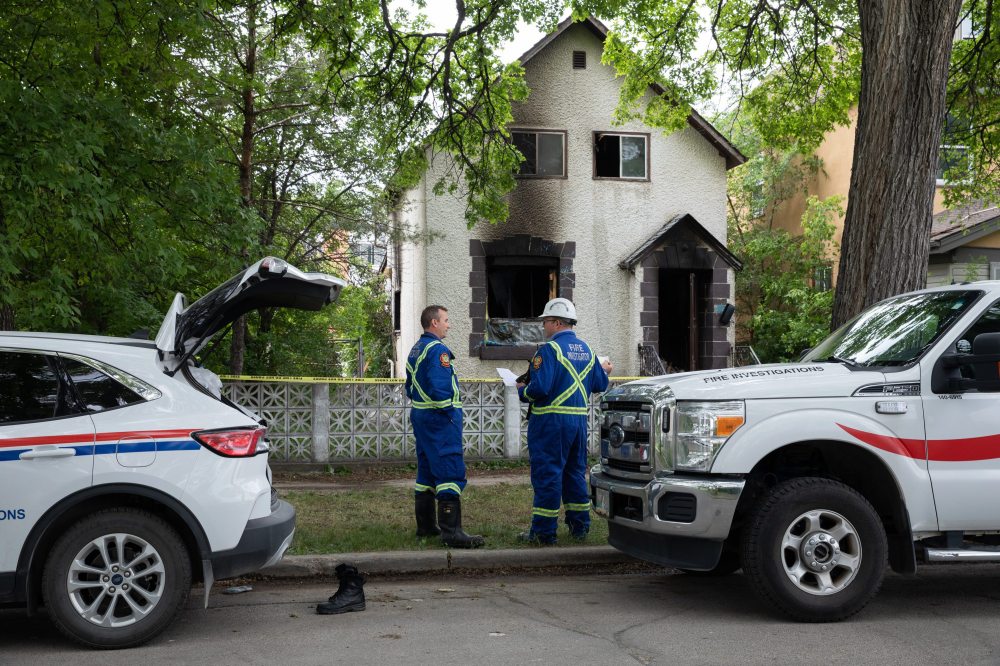There are two things Winnipeg taxpayers should know about why city hall is predicting a $39 million deficit this year — and why that could deplete its so-called rainy-day fund.
For starters, it doesn’t budget properly at the beginning of the year. There are at least two areas where the city knows spending will be higher than projected — snow clearing and fire paramedic overtime costs. Yet city officials deliberately under-budget in those areas. There may be similar examples the city is not disclosing.
Second, there are cost-saving measures the city could be taking but refuses, specifically in fire paramedic service, where overtime costs are contributing to its projected $12.1-million deficit.

Winnipeg Fire Paramedic Service spokeswoman Terryn Shiells told the Free Press in an email this week its overtime budget is deliberately set low at the beginning of the year. That usually results in the WFPS requesting additional funds when overtime exceeds what was budgeted. So they know overtime costs will be higher, but they don’t budget for it.
It’s the same with snow clearing. Coun. Jeff Browaty, chairman of the city’s finance committee, admits the city doesn’t budget enough even for an average snowfall year. Considering how volatile snow-clearing costs can be (one major unanticipated snow dump can add millions to that expenditure line), it’s fiscally irresponsible to deliberately under-budget for that service.
What other budget figures are they fudging?
Under-budgeting means city council is not providing the public with an honest and accurate fiscal blueprint at the beginning of the year. It’s spending in some areas it can’t afford. The city is not matching projected revenues with known projected costs. It’s bad budgeting and it’s disingenuous.
The city is projecting a $39.3-million deficit in its tax-supported budget this year. However, it likely won’t end up that high. The city typically reveals a large projected deficit early in the year then almost always whittles it down to a manageable amount — or eliminates it altogether — by the end of the year.
It does so by delaying new hires (so-called vacancy management), putting off certain expenditures until the following year, selling assets and taking other measures. Whatever deficit is left at the end of the year is usually covered by the city’s financial stabilization reserve.
Trouble is, that fund is on the verge of running dry. There isn’t enough in the reserve (the balance is currently $31.7 million) to cover this year’s projected deficit. That shortfall will almost certainly fall by the end of the year as it has in past years. But the city will still likely have to use some portion of the rainy-day fund to cover the rest. Eventually, that fund will run out.
There are cost savings the city could implement but has refused. For example, it could avoid skyrocketing fire paramedic overtime costs by hiring more firefighters. The reason overtime is so high is because the WFPS is understaffed and has to regularly bring in additional firefighters at overtime rates. That adds millions in unnecessary costs each year. Controlling costs by delaying hiring is fine until the overtime costs exceed savings, which is what is happening in the fire paramedic service right now.
Meanwhile, the WFPS recently proposed a cost-saving option to have fewer staff in fire vehicles per shift but city council turned it down. Why? Councillors had a perfectly acceptable opportunity to reduce costs without affecting safety or service quality and they rejected it. What other cost-saving measures has city council turned down that it hasn’t revealed?
There is no doubt the city needs a new funding deal with the province that would give it a share of growth revenues, such as sales tax and/or income and corporate taxes. Trying to run a city largely on property tax revenues, which do not grow as the economy expands, is a fundamentally flawed governance model. The city will continue to struggle financially and fall short of providing basic civic services until it gets a new deal from the province.
In the meantime, it should at least avail itself of the cost-saving opportunities it has and draft accurate budgets based on known expenditures.
Eventually the city’s rainy-day fund will run out and the city will be left with no other option but to raise taxes and/or slash services deeper than it has been. That sounds like a recipe for disaster.
tom.brodbeck@freepress.mb.ca

Tom Brodbeck
Columnist
Tom Brodbeck is a columnist with the Free Press and has over 30 years experience in print media. He joined the Free Press in 2019. Born and raised in Montreal, Tom graduated from the University of Manitoba in 1993 with a Bachelor of Arts degree in economics and commerce. Read more about Tom.
Tom provides commentary and analysis on political and related issues at the municipal, provincial and federal level. His columns are built on research and coverage of local events. The Free Press’s editing team reviews Tom’s columns before they are posted online or published in print – part of the Free Press’s tradition, since 1872, of producing reliable independent journalism. Read more about Free Press’s history and mandate, and learn how our newsroom operates.
Our newsroom depends on a growing audience of readers to power our journalism. If you are not a paid reader, please consider becoming a subscriber.
Our newsroom depends on its audience of readers to power our journalism. Thank you for your support.